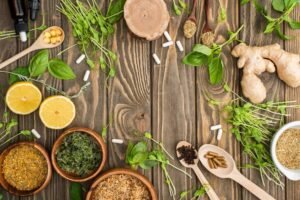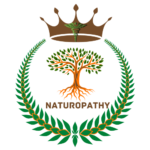
HISTORY
Naturopathy is a holistic approach to healthcare that emphasizes the body’s natural ability to heal itself through non-invasive methods and natural remedies. Its origins can be traced back to ancient healing traditions and philosophies, but it emerged as a distinct practice in the late 19th century.
- ANCIENT ROOTS
- EUROPEAN INFLUENCES
- FORMATION OF NATUROPATHY
- RECOGNITION AND EVOLUTION
- MODERN NATUROPATHY
Naturopathy draws inspiration from ancient healing systems like Ayurveda, Traditional Chinese Medicine, and Greek natural philosophy. These systems recognized the importance of harmonizing the body, mind, and spirit for optimal health.
The 19th century saw a revival of interest in natural healing methods in Europe. Figures like Sebastian Kneipp, a German priest, and Vincent Priessnitz, a Czech farmer, popularized hydrotherapy (the use of water for healing) and other natural treatments.
The term "naturopathy" was coined by Dr. John Scheel in the late 19th century. Dr. Benedict Lust, often referred to as the "father of naturopathy," introduced the principles of naturopathy to the United States. Lust combined European natural healing traditions with American holistic concepts to establish naturopathy as a distinct medical philosophy.
Naturopathy gained popularity in the early 20th century, with naturopathic colleges and associations being established. However, it faced challenges from the conventional medical establishment, leading to regulatory issues and debates over legitimacy.
n recent decades, naturopathy has experienced a resurgence as people seek alternative and complementary healthcare options. Modern naturopaths integrate a range of therapies, including herbal medicine, nutrition, acupuncture, homeopathy, and lifestyle counseling, to promote wellness and prevent disease.
NATUROPATHY FOUNTATIONAL PRINCIPALS
Naturopathy is built upon several core principles, including:
- Vis Medicatrix Naturae: The body has an inherent ability to heal itself when given the right conditions and support.
- Identify and Treat the Root Cause: Rather than just alleviating symptoms, naturopaths aim to uncover and address the underlying causes of illness.
- Do No Harm: Naturopaths prioritize non-invasive, gentle therapies that minimize harm to the body.
- Doctor as Teacher: Naturopaths educate and empower patients to take an active role in their health journey.
- Treat the Whole Person: Mental, emotional, and spiritual aspects are considered alongside physical health.




TREATMENTS
Naturopathy encompasses a range of natural treatments aimed at promoting health, preventing illness, and supporting the body’s innate healing processes. While specific treatments may vary based on the practitioner and patient’s needs, here are some common treatments used in naturopathy
Dietary and Nutritional Counseling:
- Balanced Diet: Emphasizes a diet rich in fruits, vegetables, whole grains, lean proteins, and healthy fats while minimizing processed foods and sugars.
- Supplements: Recommends vitamins, minerals, and other natural supplements to address deficiencies and support health.
Herbal Medicine:
- Utilizes plants and plant-based substances for their healing properties.
- Common herbs include echinacea, ginseng, chamomile, and St. John’s wort, used to support various health conditions.
Hydrotherapy:
- Uses water in various forms like baths, compresses, or wraps to stimulate circulation, soothe muscles, and promote detoxification.
Physical Medicine:
- Incorporates techniques such as massages, manipulative therapies, and exercise to improve muscle and joint function, reduce pain, and enhance overall well-being.
Homeopathy:
- Administers highly diluted substances to stimulate the body’s self-healing mechanisms, based on the principle of “like cures like.”
Traditional Chinese Medicine (TCM) and Acupuncture:
- TCM includes practices like acupuncture, herbal medicine, cupping, and qi gong, aiming to balance the body’s vital energy (qi) for optimal health.
Mind-Body Therapies:
- Meditation and Mindfulness: Promotes relaxation, reduces stress, and improves mental clarity and focus.
- Yoga and Tai Chi: Combines physical postures, breathing exercises, and meditation to enhance flexibility, balance, and mental well-being.
Lifestyle Counseling:
- Encourages lifestyle changes such as stress management, adequate sleep, regular exercise, and smoking cessation for improved health.
Detoxification and Fasting:
- Advocates for periodic fasting or detoxification programs to eliminate toxins and support the body’s natural detox mechanisms.
Aromatherapy:
- Uses essential oils extracted from plants to promote relaxation, enhance mood, and address certain health issues.

